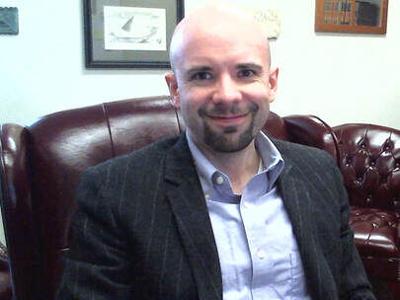It was the car crash to end all car crashes.
Or so it sounded when it woke me in the early morning hours, wide-eyed, heart pounding. I lay curled up in bed, straining to hear other sounds outside my quiet house. Were people OK? Where were the sirens? The firetruck? The ambulance? Nothing. I didn’t feel brave enough to untangle from my cozy nest to look out the window, and instead fell back to sleep, sure I’d see evidence of the huge accident in the morning.
But there was nothing in the street. No debris. No battered bumpers. I shrugged it off. Maybe it wasn’t that bad of an accident, and they cleaned it up themselves, or just drove off into the night, dents, scratches and all. Some weeks later, I ran into a neighbor and asked her about it. She had no idea what I was talking about.
And now, after all these years, I’ve finally learned what happened that night: exploding head syndrome. The host of a podcast I listen to mentioned it to a caller, and it sounded suspiciously like what I had experienced. I looked it up, and yes, it’s a real thing. And maybe it’s happened to you, too.
The violently named condition is a sleep disorder in which you hear a loud noise either as you’re falling asleep or waking up in the night. The sound isn’t real and isn’t heard by anybody but you.
“Crashing metal is very common,” said Dr. Brian A. Sharpless, a licensed clinical psychologist in the Washington, D.C., area. He’s a lover of strange things, including sleep paralysis, and is the author of such books as “Sleep Paralysis: Historical, Psychological, and Medical Perspectives” and “Unusual and Rare Psychological Disorders: A Handbook for Clinical Practice and Research.”
Other common sounds associated with exploding head syndrome: fireworks, an exploding bomb, gunshot, cymbals crashing, a lightning strike. And it might not just be a loud noise. Some people also get massive flashes of light in their eyes.
“My favorites are a massive guitar string snapping,” Sharpless said. “One patient said it sounded like in the ‘Looney Tunes’ cartoons when Wile E. Coyote is trying to kill the Road Runner, and throws a piano down from a cliff and it crashes.”
That car crash wake-up call wasn’t the only time I’ve experienced the syndrome. It happened a couple of years ago when I was once again drifting off to sleep or waking up, and heard what I thought was a huge tree limb fall on my roof. I drowsily thought, “Dangnabbit. Well, I’ll deal with it in the morning.”
Several other instances of loud bangs in the night also have occurred through the years, and all of them I have shrugged off in my sleep haze. Maybe some subconscious part of me knew they weren’t real? Because wouldn’t you get up with a quickness if an actual tree had fallen on your home?
Five main theories exist to explain this unusual phenomenon. The one Sharpless likes best is this: The part of the brain stem responsible for inhibiting the motor, visual and auditory neurons as we go to sleep falls down on the job, and instead makes the auditory neurons fire all at once. So you don’t hear symphonies or speeches, just a quick, acute burst of noise.
“Going to sleep is a complicated process. There’s lots that can go wrong,” he said. “Usually major sleep disorders are various mixtures of sleep and wakefulness.”
Anything that disrupts sleep makes the condition more likely, such as stress and other psychological disorders. Some believe the syndrome might be genetic, while others say it’s a variation of a headache. A 2015 study that looked at college students found 13% of students had experienced exploding head at least once. At least 10% of people will experience it in their lifetime, and it’s safe to say women are likelier to experience it than men, Sharpless said.
The syndrome goes back to 1876, when a psychiatrist named Silas Weir Mitchell wrote about sensory discharges. In 1922, somebody else called it a snapping of the brain, and it received its current name in 1986. Sharpless would like to rename the syndrome episodic cranial sensory shocks: “It’s more boring, but more in line with what goes on.”
For me, exploding head hasn’t been detrimental. It’s just provided a few weird nights I’ve clearly brushed off. But for others who might be more bothered by episodes, there are a few things that could help. Even just learning what it is and that it’s not dangerous can help reduce the frequency of episodes, Sharpless said. Some drugs also seem promising, including a few antidepressants. They don’t make the sounds go away, but they can reduce the volume.
If somebody is having pain along with similar episodes of loud noises and/or flashing lights, that’s when you need to get to a doctor. And if the episodes are affecting your sleep, such as causing you to negatively associate going to bed with loud noises, try a sleep specialist.
“If it doesn’t hurt or trouble you, it’s just something fun to tell your partner the next morning,” Sharpless said. “It’s kind of cool to think you’ve experienced something like exploding head syndrome.”
Contact the writer: 636-0270






 Your Privacy Choices
Your Privacy Choices